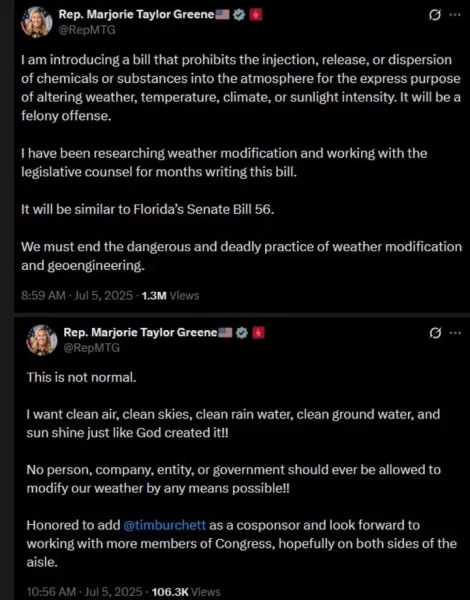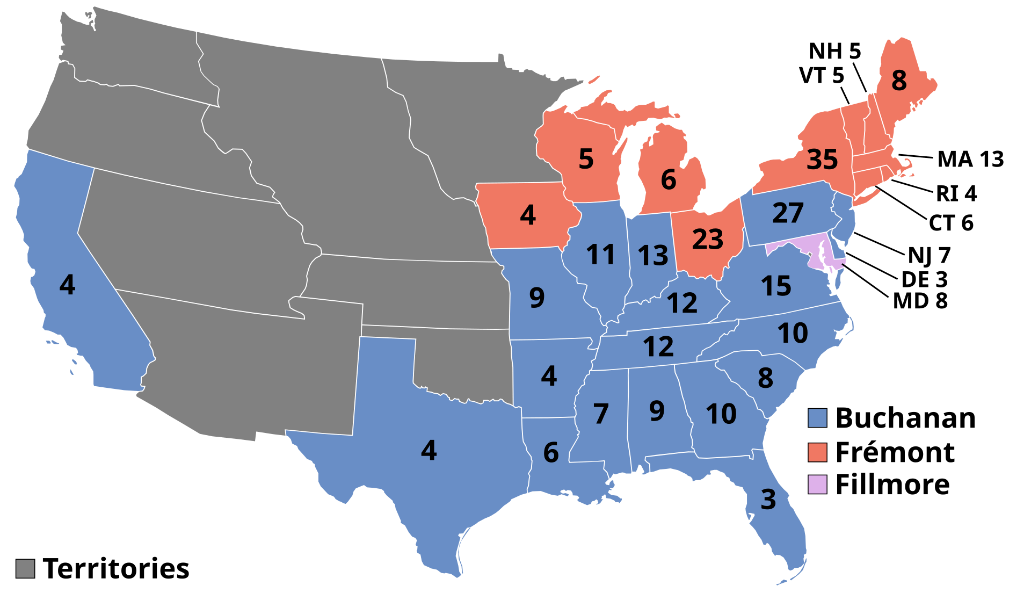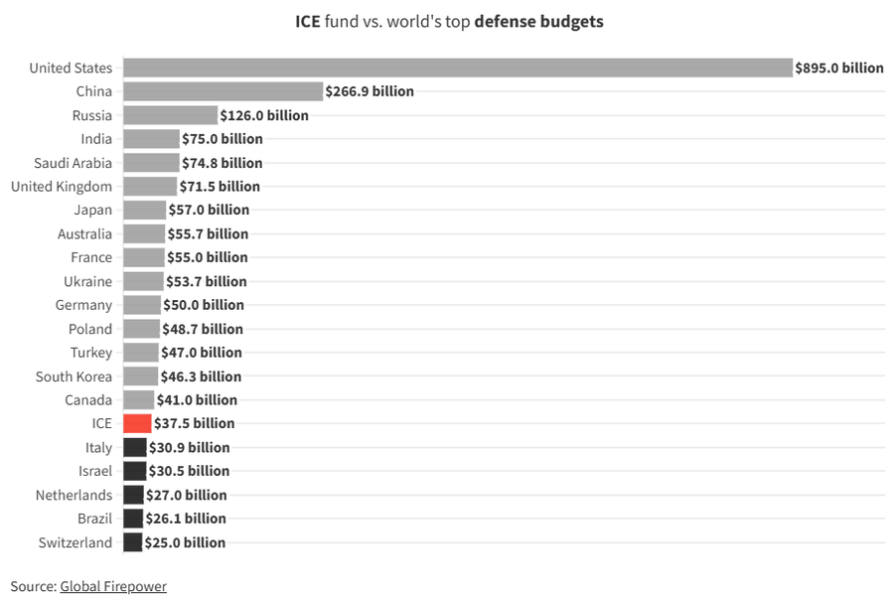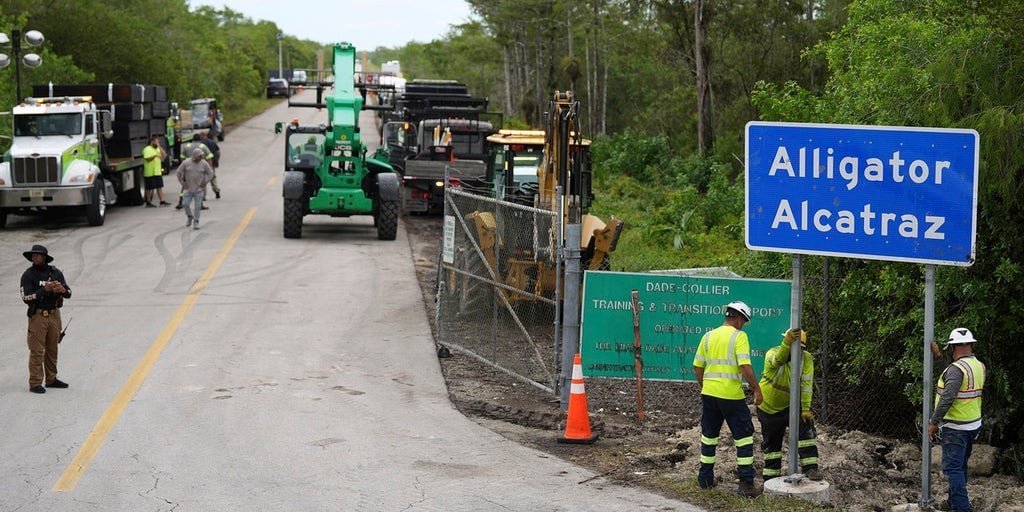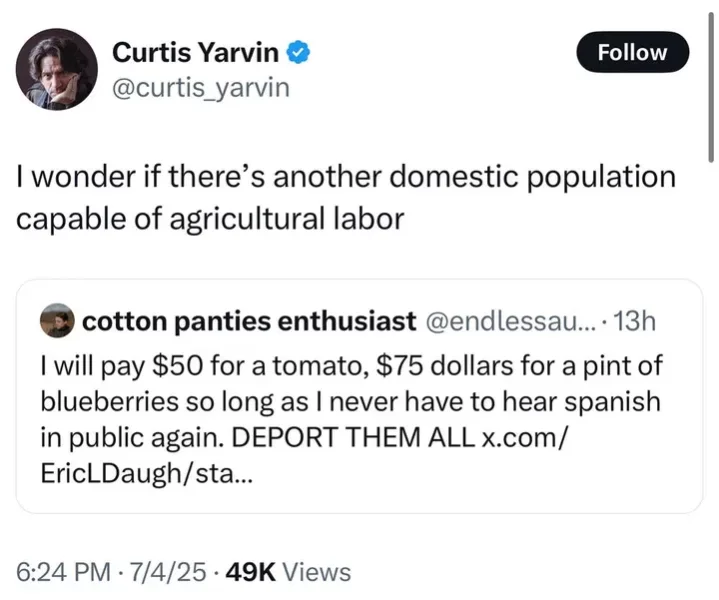
MicroB
Advanced Member-
Posts
1,502 -
Joined
-
Last visited
Content Type
Events
Forums
Downloads
Quizzes
Gallery
Blogs
Everything posted by MicroB
-
Your response indicates a lack of comprehension. Tankie, go back to studying your favourite books on Marx and Mao, and believing the Commies. You were the Original Poster. You, tellingly, offered no personal analysis of the article when your handlers, mates, told you to post this on every forum you could find. I asked you for your own analysis of the analysis, indicating that you had some understanding of it, and a brief explanation why you are enjoying reading the writings of a Bolshevik who believed Russia runs America now. If you declined, then you were the opposite of someone you called "manly" (your homoerotic choice of words), aka a BGB. You declined. Show me a distinct independant USA that existed before 1776. I will decline to further respond to your Soviet-esque attacks until you can tell me when you stopped being a Communist,
-
What happens to MAGA when Trump croaks? Its a personality cult, and his sons, all of them, have no personality. Vance lacks charisma. MTG?
-
Hence the Little Pink accounts in China have become noticeably more noisy about reclaiming lost territory from.......Russia. They have Vladivostok in their sights. https://www.newsweek.com/china-russia-vladivostok-lesson-far-east-backfires-1869327 This isn't Chinese government policy, even though there was a bit of a border shift recently. Xi is attempting to keep control in China, and that might be weakening with these nationalists, fired up about movies depicting mighty imperial China. Perhaps Xi's fear of a Russian loss is related to if that would inevitably trigger a collapse in the Moscow government, 1918 style, and a final dissolution of the Russian Empire, feeding the expansionist instincts of the Little Pinks and others. One thing Xi wants is stability and "harmony" (on Chinese terms). He wants a predictable world, not a half wit in the White House and a speed-fueled Putin, plus the Fat Boy in Korea getting ideas. It seem the stars have aligned in a really bad way.
-
UK 7/7: The Day That Shattered London’s Innocence
MicroB replied to Social Media's topic in World News
No he isn't. The leader of Al Qaeda is Colonel Mohamed Salah al-Din al-Halim Zaidan, aka Saif al-Adel, who was last heard of being under house arrest in Iran. He is a former Commando in Sadat's military. -
His upbringing was not ideologically conventional. His Grandfather in Canada was a leader in the Technocracy movement, and emigrated to South Africa when it started passing race laws. Musk's father was active in South African politics, and was a member of the Progressive Federal Party, which was the official opposition in Apartheid South Africa, advocating the abolition of Apartheid. It held liberal political positions. Later, he joined the New Republic Party which was more centrist. While Musk's parents divorced, Musk chose to live with his father. Musk's mother was Canadian born, of American descent. Musk's father is of solidly English descent, and not an Afrikaaner. So I would not assume Musk was brought up believing in white supremicist principles.
-
Riots against American digital nomads in Mexico City
MicroB replied to John Drake's topic in Political Soapbox
That seems likely to stop, following the new Agri-Hospitality policy announced in Iowa; Mexicans will be working, but not sending any money home, because they won't be getting any money, but will be getting free (shared) room and board. -
Riots against American digital nomads in Mexico City
MicroB replied to John Drake's topic in Political Soapbox
The US policy on illegal immigrants has changed. Following an address by the President, DHS is now looking at processes to allow selected illegal immigrants to work in the agricultural and hospitality trades, based on employer demand. There is no suggestion these workers will be regularised, ie issued visas. Its likely these workers will be escorted from detention centers or other establishments, by ICE agents, to places of work, and then escorted back to ensure they won't abscond. -
Transcript of the presidential remarks in Iowa https://rollcall.com/factbase/trump/transcript/donald-trump-speech-salute-to-america-des-moines-iowa-july-3-2025/ This bit got him into a bit of hotwater. Turns out he didn't know what the word meant. This bit is somewhat overlooked Presumably the US government isn't pursuing a policy to revoke all Green Card and H-visas. They are ejecting illegal immigrants. But the President inferred that Iowan famers (and hoteliers) can get to keep their illegal immigrant staff if they can be "vouched" for. How does this work? Do vouched for illegal immigrants get paid? Would they have to work for free? Would they be drawn from detention facilities for work detail? How would they stop an illegal immigrant who has been "vouched for" leaving to go work on some other farm? Hunt them down? And how is this funded? Part of the speech highlighted beef and ethanol exports to the UK. The UK is of course no obliged to accept produce and goods that does not meet UK standards for methods of production. During discussions with the British Prime Minister, the President was very keen to emphasize that he basically agreed with that position, but felt its not a problem as under his leadership, the quality of produce would be second to none. Britain has anti-slavery laws, introduced by Conservative Prime Minister David Cameron (a slight oversight, given that slavery was never actually legal in the UK). I am sure lawyers will be looking, with keen interest, how the DHS will manage the "employment" of selected illegal immigrants. I expect this policy is not just for Iowa.
-
Ok, I will bite. I would of course expect a similar well arguedessay from yourself as to why you believe Dr Markovsky, ie evidence that you have independantly verified his claims and interpretations. If you don't, I will conclude that you are not "manly", and therefore are effeminate (since this is how you view the world). Markovsky basically attempts to question the legitimacy of Ukraine as a sovereign nation, contending that Ukraine was artificially constructed, largely due to the actions of Lenin, Stalin, Hitler and others, and suggests that its future is uncertain, possibly destined to fragment and be subsumed by its neighbouring powers. But he overlooks key historical facts and the profound realities of Ukraine’s identity, sovereignty, and resilience. His argument is deeply reductionist, because he brazenly ignores a 1000 years of history in order to fit his Russophile world view (your academic hero is a 81 year old Professor of Marxism, who contends that America has adopted Bolshevik principles and never defeated Communism, and has frequently defended Putin). Ukraine’s history can be traced back to the Kievan Rus, which emerged in the 9th century, which laid the foundation for the modern Ukrainian identity. To decry that is to question the legitimacy of the United Kingdom, because Boudica was a long time ago. The Ukrainian people have long inhabited the lands that make up today’s Ukraine, with a distinct language, culture, and identity that predates both Soviet and Nazi interventions. The idea that Ukraine’s sovereignty is merely the result of 20th-century political machinations disregards this long history of Ukrainian statehood, language, and culture. Your Marxist hero's critique hinges heavily on the Soviet legacy, particularly the role of Lenin and Stalin in the formation of the Ukrainian SSR. Ukraine's post-Soviet independence was not a mere continuation of Soviet designs. Many Ukrainians have long resisted Soviet domination, particularly during the Holodomor, a man-made famine orchestrated by Stalin that killed millions of Ukrainians, and during the mass purges that targeted Ukrainian intellectuals and nationalists. Ukraine's aspirations for independence existed long before the collapse of the Soviet Union. The Ukrainian People's Republic is evidence enough of early effort toward independence in the moden era, even if that movement was ultimately crushed by your Hero's Bolshevik forces. The persistent desire for sovereignty persisted throughout the Soviet era, culminating in the 1991 independence referendum, where over 90% of Ukrainians voted in favor of independence, a clear rejection of Soviet rule. Your own country rejected British Rule; are you saying the United States of America is not a legitimate country? Are you now suggesting the Republic of Ireland has no legitimacy? Taiwan has no legitmacy? Israel has no legitimacy. I hadn't taken you as someone who was anti-Jewish. Well well. Markovsky’s inclusion of Hitler in the formation of Ukraine’s national identity is both misleading and problematic. The Ukrainian Insurgent Army fought against both Nazi and Soviet forces in a quest for Ukrainian independence. The idea that Ukraine owes its existence to Nazi Germany ignores the fact that the Ukrainian people, like many others in Eastern Europe, were victims of Nazi imperialism. Further, after the war, the Soviet Union effectively reasserted its control over Ukraine, quashing any attempts at full autonomy. To suggest that Ukraine’s modern identity owes anything to the Nazis is not only historically inaccurate but offensive to the millions of Ukrainians who suffered under Nazi occupation and later under Soviet rule. One of the key flaws in the effing Commie's argument is the suggestion that Ukraine’s sovereignty is fragile and destined to fragment into neighboring countries. Your Bolshevik Best Friend overlooks the 2014 EuroMaiden and the subsequent Revolution of Dignity. These protests were not orchestrated by foreign powers but were a direct expression of the will of the Ukrainian people to forge their own path. Commies try and say otherwise. When did you stop being a Commie? Moreover, Ukraine has faced unprecedented challenges in recent years, particularly with Russia’s annexation of Crimea and its ongoing military aggression in eastern Ukraine. Yet, despite the ongoing conflict, Ukraine has not only preserved its sovereignty but has also strengthened its identity as a nation. Far from fragmenting, Ukraine has exhibited remarkable unity and a strong sense of national identity. Thus this Markovsky tosser is a loser. Markovsky’s claim that Ukraine will eventually fragment and be absorbed by neighboring countries neglects the powerful dynamics of national identity and the geopolitical landscape. The people of Ukraine have decisively rejected Russian attempts at subjugation, and the country’s strong desire for integration into the broader European community, not to fragment or regress into a subordinate state. Your Commie loving hero's aarticle offers a narrow and historically inaccurate interpretation of Ukraine’s formation and future. Ukraine is not merely a creation of 20th-century authoritarian regimes; it is a nation with deep historical roots and a strong, resilient identity. So, go ahead. Why do you think a Commie is correct? Why are you reading Commie articles? Who is sending you obscure commie articles? When did you stop believing in Bolshevism? I predict you are a melt.
-
I've no doubt some Allied troops perhaps took shameful actions during WW2, but I shed not a tear for the Nazi pigs. This is an example of Soviet Whataboutry, invented duringn the Cold War. The Russians and their apologists keep it up, seeking some sort of moral equivalence for their shameful actions. I see in this thread the usual suspects from Putin's unpaid Thai forum army have shown up, keen to defend the boss, but in an underhand manner, claiming not to be a "Putin Fan".
-
Depends who he puts up as candidate. Musk cannot run. There are some current politicians mentioned, including those who voted against the Big Bastard Bill but also loonies such as MTG and Laura Loomer. If Musk is true to his word, which implies a socially liberal, fiscally conservative (which is the middle ground of most countries; careful with your money, but live and let live for the lives of others), these loons won't feature. That the Mooch has expressed interest; the guy is very intelligent, and his discussions with Rory Stewart (another middle grounder Tory) and Alastair Campbell, are illuminating and enjoyable. Of course, he might be another Wall Street grifter, albeit a self-made one. Trump could croak any day. The usual mantra is that third parties never stand a chance in the Winner Takes All American system. But remember, the Republican Party itself was a third party, formed as an anti-slavery party, which took advantage of divisions within the Whigs. Within 6 years of being founded, the Republican Party had a President. The 1856 election was a 3 way, with the Whigs replaced by the Know Nothings. Probably need a rethink on the party name. The last time The American Party contested an election:
-
With a larger budget that the defence spend of Italy. Its a bigger budget than the Israeli defense budget, which includes about 50-100 nuclear weapons. Two and half times bigger than the Iranian budget, and they get to build nukes from that budget. With the current $4 billion a year, ICE has a headcount of 20,000, of which 7,711 are in Enforcement and Removal Operations directorate; these are the sloppy looking goons who can't afford clean tidy clothes and a shave. The $41 billion increase gets 10,000 more goons. But where is the ICE airforce and navy? Its essentially the funding of a paramilitary force that is not answerable to the DoD, but instead is under the direct command of the President. Putin took the same approach, when he formed the Rosgvardiya. However, what we see now is that the Rosgvardiya and other Presidential troops has lead to a degradation in the quality of the Russian Army.
-
Taiwanese people refer to Hong Kong Chinese as Bananas. I assume you object to the term Redneck, and regularly send written complaints to the authorities when you see the term in use. Similarly you are on the phone regularly about the use of Karen. You are literally 7 years too late regarding the debate about the perjorative use of the word Gammon, which first emerged as an insult early in the 17th Century. #gammonparadox Nicholas Nickleby The insult describes a state of mind, not a race. For instance Kanye West would meet the definition of a Gammon. Similarly, being called a pillock isn't a sexist insult. If I call you a numpty, I am not implying you are cuckolded husband. In truth some people looking to be offended by the term "Gammon" are only doing so, to legitimise their foul racist language. Ironically this subgroup of Gammons have transmogrified into Snowflakes.
-
Putin apologists out in force, usual names defending mass murder. Back in the day, they'd be called Quislings. Quisling and Joyce were dealt with.
-
Updates and events in the War in Ukraine 2025
MicroB replied to cdnvic's topic in The War in Ukraine
Shenanigans. https://www.theconcis.com/p/the-call-the-cover-up-and-the-colby?utm_medium=email&hide_intro_popup=true -
Updates and events in the War in Ukraine 2025
MicroB replied to cdnvic's topic in The War in Ukraine
Boom. Oil pipeline 10,000kms from the front line blown up. https://www.ukrinform.net/rubric-emergencies/4011919-major-russian-gas-pipeline-explodes-near-vladivostok-intelligence.html -
Updates and events in the War in Ukraine 2025
MicroB replied to cdnvic's topic in The War in Ukraine
Waste of time and resources idea. Most are probably utterly useless for used by a military; the Ukrainians operate a sophisticated first world military. These seized motorbikes come in all sorts of shapes, sizes, condition, all over the UK. So the government will have to put in place a logistics operation to collect these motorbikes, and shift them all to, probably, MOD Bicester. The RLC technicians will need to check all this crap; most will be utter junk. Over in Abbeywood, the MOD will need to form a delivery team, likely made up of contractors with a couple of middle ranking officers seconded for the duration. Each Contractor will run to about £1000 a day. The remaining Temu/Alibaba bikes will need to containerised up, so pull some RLC lads to do the container racking. Then its shipped to Lviv or whereever. I'd probably pencil in an annual budget of £10m a year for this. At the Ukrainian end, they need to find some 1-legged squaddies to take on the challenge of receiving these Chinese knock offs from the Brits, of uncertain type and condition. The Ukraine military will have its own version of UK DefStan, and will have acceptance criteria and processes for any systems entering military service. They will need to establish a support capability; no point asking the Brit RLC for some training, as this is just random lawnmover motorbikes / E-bike pulled off the street which some bloke called Dazza reckons is alright. If they don't, what happens if they are deployed, and break down. No spare parts, no knowhow. When Ukraine scoured Autotrader for all those 15-20 year old Rangers, Hiluxes, Defenders, Disco 2s, P38 Rangies, Outlanders, Shoguns etc early on, that was for very specific reasons. It was an urgent operational requirement, to pressgang vehicles into service. Ukraine has the money to purchase Ford and Toyota's entire stock of brand new vehicles, but these are too complex. These 20 year old vehicles had excellent spares support through the existing Ukrainian motor factors, civvie mechanics could quite happily work on them. I'd rather the UK just hand Ukraine £10m to buy what they need off the E of Bay. -
SPOILER - JD Vance will win in 2028 and 2032
MicroB replied to angryguy's topic in Political Soapbox
No chance if he is denaturalized. -
Alligator Alcatraz Prison , the Cecot ,on the shores of the Everglades
MicroB replied to riclag's topic in Political Soapbox
Bets when someone over night will put up a crafty sticker to alter the official signage being erected. Its becoming clear from recent social media there is a section of conservative social media influencers who wants the illegal immigration debate to move from "illegal imigrants" to any and all native Spanish speakers. First Laura Loomer called for essentially genocide to be conducted against the Hispanic population (she is allegedly the Presidents former mistress, but there is debate what influence she has, or if she is expressing private beliefs held within the Cabinet). Now this; So a twitter account doesn't want to hear Spanish spoken again, and his answer/wish is for all Spanish speakers to be deported. Curtis Yarvin, aka Menicius Moldbug, is the founder of the Dark Enlightenment movement, and cited as a key infliuencer of Peter Thiel and JD Vance, and has previously championed a techno-monarchy system to replace US constitutional democracy, as well as ruminating on the reintroduction of slavery. His response to this poster is to suggest another social group should be put to work in the fields. We know who he means, and he doesn't mean ruddy faced good ol' boys. We will see more of this talk being put in the open, and normalized. And there are people on this forum deeply sympathetic with this position, and will likely cite a lack of these sort of policies is why they have to live in a Cambodian brothel.





